The income gap is China and US' common domestic foe
Updated: 2013-08-01 13:10
By Chen Weihua (China Daily)
|
|||||||||
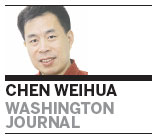
The United States and China - the world's two largest economies - are both facing a tough fight on their own home fronts: ever widening income gaps between the haves and the have nots.
In his speech at Knox College in Galesburg, Illinois last week, President Barack Obama said incomes of the top 1 percent of the wealthiest Americans nearly quadrupled from 1979-2007, but the typical family's income barely budged.
The growing inequality, he said, was not just morally wrong, it was bad economics.
Obama recalled his speech at the college in 2005 as a young senator from Illinois, when he talked about the trend of a winner-take-all economy, where a few do better and better and better, while everybody else just treads water.
"Those trends have been made worse by the recession. And that's a problem," Obama said.
According to the US Census Bureau data, the US' Gini ratio - an index that measures equality and social mobility - for the US stood at 0.475 in 2011, higher than the 0.469 in 2010. A higher Gini ratio means greater inequality in a society and analysts regard a ratio above 0.4 as posing danger for widespread social dissatisfaction.
Obama, who was on tour last week to - as he put it - fight for middle class Americans, said, "when the rungs on the ladder of opportunity grow farther and farther apart, it undermines the very essence of America, that idea that if you work hard, you can make it here".
Obama made no mention of the fact that outrage over the growing disparity between the top 1 percent and the other 99 percent was the cause of the Occupy Wall Street movement that swept across the US two years ago. Few politicians and mainstream news media ever took that massive grassroots movement seriously.
The nationwide protests two weeks ago in response to the acquittal of George Zimmerman, a neighborhood watch coordinator charged with second-degree murder and manslaughter in the shooting death of 17-year-old African American Trayvon Martin, again reminded many Americans of inequalities faced by the black community.
A new report from the Washington-based Economic Policy Institute said that the top 1 percent of Americans take home 20 percent of the nation's income.
Although Obama's remarks last week have been interpreted as making an argument to Congress for increasing taxes on the rich - and not cutting social programs - as a solution to reducing monstrous deficits, many believe income inequality will remain a permanent battle in the largest developed country in the world.
In China, the world's largest developing country, people express a rising concern over the widening gap between the rich and the poor, despite a relatively fast rate of economic growth, a Pew Center report said last October.
Early this year, China's National Bureau of Statistics announced the country's Gini ratio was at 0.474 in 2012, down from the 0.477 in 2011 and 0.491 in 2008.
Yet just weeks before the bureau's announcement, a study by the Chinese Household Finance Survey Center of the Southwestern University of Finance and Economics in Chengdu put China's Gini ratio at 0.61 in 2010.
This is in sharp contrast to the days of a mostly egalitarian society before China started its reforms and push to open-up in the late 1970s. For a long time before then, the Gini ratio stayed below 0.2.
Statistics also showed that the top 10 percent earned about 25 times more than the bottom 10 percent, compared with the 1980s when the top 10 percent earned seven times more.
Ma Jiantang, director of the National Bureau of Statistics, said the nation's Gini ratio curve demonstrates the urgency for China to speed up reform of the income distribution system to narrow the gap between rich and poor.
Uneven regional development and an unfair resource distribution system that favors urban populations are regarded to be among the major causes of income disparity.
But economist Wu Jinglian cautioned that reforming the tax system alone will not solve the problem; a system overhaul is needed to impose checks and balances on the centers of power, so that those in power won't control so much of the resources, he says.
For years, public resentment towards the rich has been strong in China because many believe that some rich people accumulated their wealth by breaking laws and abusing power.
Bian Lixin, a professor at Central Party School, believes an income gap caused by unfair practices is the biggest obstacle to realizing the "Chinese Dream" promoted by Chinese leader Xi Jinping as a way to rejuvenate the Chinese nation.
Many Chinese cities and provinces have been mapping out their plans after the 18th Congress of the Communist Party of China announced last November the ambitious goal of doubling the nation's 2010 household income levels by 2020. Many expect to also see a narrower gap between the rich and poor.
Contact the writer at chenweihua@chinadailyusa.com
(China Daily USA 08/01/2013 page2)

 Two killed in fiery crash of UPS cargo jet
Two killed in fiery crash of UPS cargo jet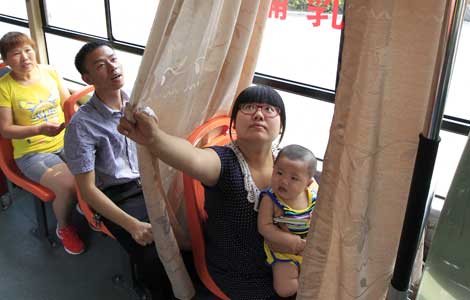
 Special bus seat for breast-feeding mothers
Special bus seat for breast-feeding mothers
 Northern exposure
Northern exposure
 Re-enacting ancestors' journey to the west
Re-enacting ancestors' journey to the west
 Yao dreams of sports for fun with towering charity
Yao dreams of sports for fun with towering charity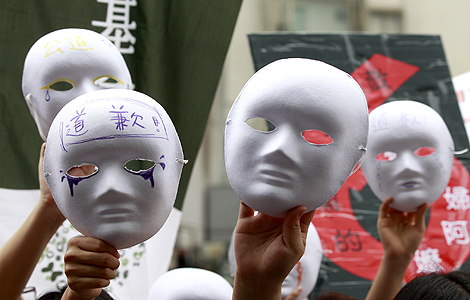
 Protests arise in Taiwan over 'comfort women'
Protests arise in Taiwan over 'comfort women'
 Huawei unveil Ascend P6 smartphone in Vienna
Huawei unveil Ascend P6 smartphone in Vienna
 When small is beautiful in hotel industry
When small is beautiful in hotel industry
Most Viewed
Editor's Picks

|

|
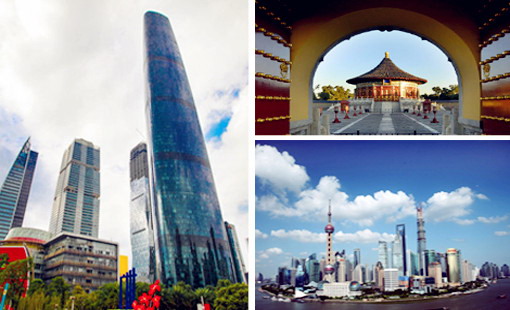
|
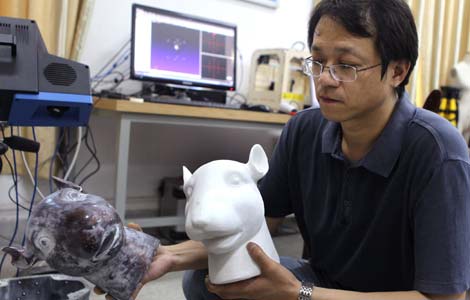
|

|

|
Today's Top News
Abe rules out visit to Yasukuni shrine
Manning 'sorry' for US secrets breach
Snowden case not to affect US-Russia talks
Over 200 dead after Egypt forces crush protesters
2 killed in crash of UPS cargo jet
China to probe foreign automakers
Watchdog to protect rights of consumers
Sizzling summer tops the record list
US Weekly

|

|






